
Marathon Key: The Heart of the Florida Keys
Marathon Key, located in the middle of the Florida Keys, is a tropical paradise known for its stunning beaches, crystal-clear waters, and rich marine life. This charming island city is a haven for water sports enthusiasts, offering activities such as fishing, snorkeling, and boating. The warm climate and tranquil atmosphere make it an ideal destination for relaxation and adventure alike. One of the highlights of Marathon Key is the Seven Mile Bridge, an engineering marvel that connects the Middle Keys to the Lower Keys. The bridge offers breathtaking views of the surrounding turquoise waters and is a popular spot for sunset watching. Nearby, you'll find the Dolphin Research Center, where visitors can interact with these intelligent creatures and learn about their conservation. Marathon Key is also home to the Turtle Hospital, a unique facility dedicated to the rehabilitation of injured sea turtles. Visitors can take guided tours to see the turtles up close and learn about the efforts to protect these endangered animals. For those seeking a more laid-back experience, Sombrero Beach provides a perfect setting for sunbathing, picnicking, and swimming. Whether you're exploring the vibrant coral reefs, indulging in fresh seafood at local restaurants, or simply soaking in the island's natural beauty, Marathon Key offers an unforgettable experience for all types of travelers.
Local tips in Marathon Key
- Visit during the winter months for pleasant weather and fewer crowds.
- Rent a kayak or paddleboard to explore the island's serene waterways.
- Book a fishing charter for an authentic Florida Keys angling experience.
- Don't miss the sunset at the Seven Mile Bridge for a spectacular view.
- Try local seafood delicacies like conch fritters at waterfront restaurants.
Marathon Key: The Heart of the Florida Keys
Marathon Key, located in the middle of the Florida Keys, is a tropical paradise known for its stunning beaches, crystal-clear waters, and rich marine life. This charming island city is a haven for water sports enthusiasts, offering activities such as fishing, snorkeling, and boating. The warm climate and tranquil atmosphere make it an ideal destination for relaxation and adventure alike. One of the highlights of Marathon Key is the Seven Mile Bridge, an engineering marvel that connects the Middle Keys to the Lower Keys. The bridge offers breathtaking views of the surrounding turquoise waters and is a popular spot for sunset watching. Nearby, you'll find the Dolphin Research Center, where visitors can interact with these intelligent creatures and learn about their conservation. Marathon Key is also home to the Turtle Hospital, a unique facility dedicated to the rehabilitation of injured sea turtles. Visitors can take guided tours to see the turtles up close and learn about the efforts to protect these endangered animals. For those seeking a more laid-back experience, Sombrero Beach provides a perfect setting for sunbathing, picnicking, and swimming. Whether you're exploring the vibrant coral reefs, indulging in fresh seafood at local restaurants, or simply soaking in the island's natural beauty, Marathon Key offers an unforgettable experience for all types of travelers.
When is the best time to go to Marathon Key?
Iconic landmarks you can’t miss
Fort Zachary Taylor Historic State Park
Immerse yourself in history and nature at Fort Zachary Taylor Historic State Park in Key West, where stunning beaches and rich heritage await.
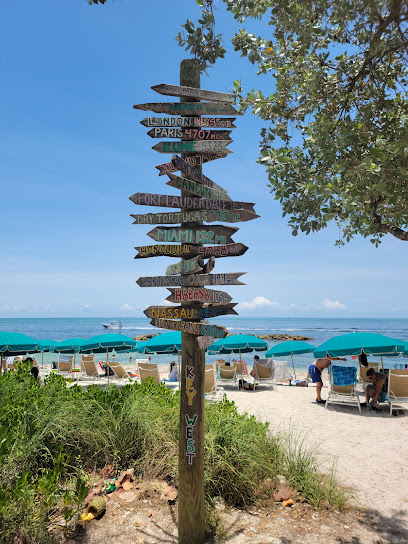
John Pennekamp Coral Reef State Park
Dive into adventure at John Pennekamp Coral Reef State Park, Florida's first underwater park, where vibrant marine life awaits exploration.
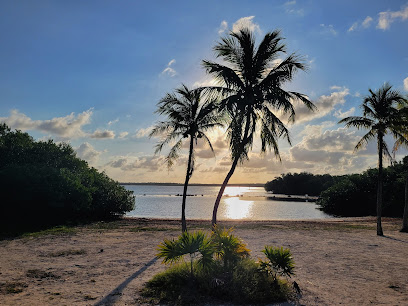
Sunset Grille & Raw Bar
Discover the flavors of the Florida Keys at Sunset Grille & Raw Bar, where fresh seafood meets stunning waterfront views for an unforgettable dining experience.
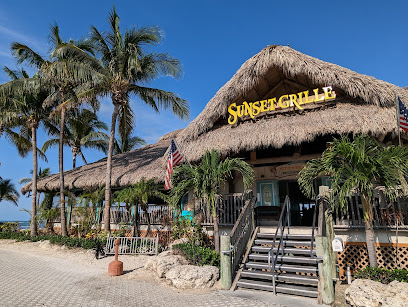
Island Fish Company
Discover the Island Fish Company in Marathon, Florida, where fresh seafood meets stunning views and vibrant island culture in the heart of the Keys.
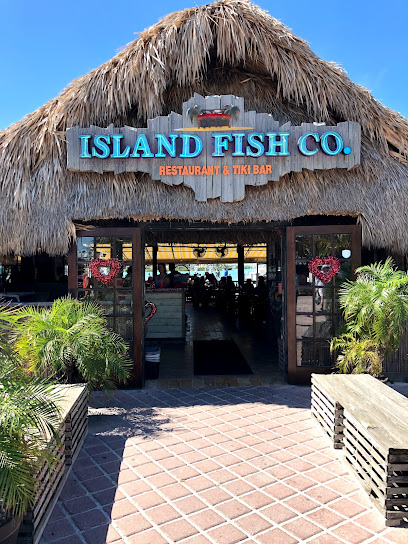
Turtle Hospital
Explore the Turtle Hospital in Marathon, Florida, where you can learn about sea turtle rehabilitation and conservation while enjoying an educational and engaging experience.
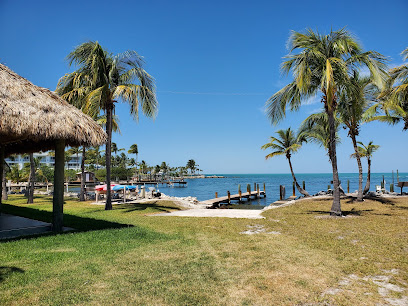
Florida Keys Steak and Lobster House
Experience the best of land and sea at Florida Keys Steak and Lobster House, where every meal is a coastal delight.
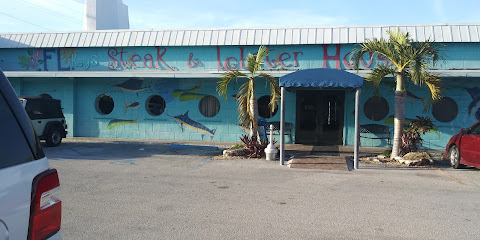
Porky's Bayside Restaurant and Marina
Discover the vibrant flavors of barbecue, seafood, and sushi at Porky's Bayside Restaurant and Marina, where delicious meals meet stunning waterside views.
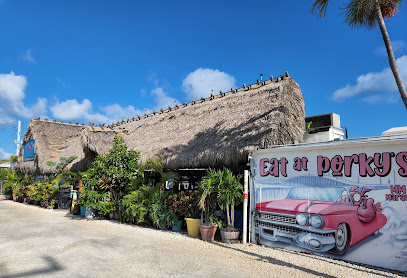
Burdines Waterfront
Experience the best of American cuisine with breathtaking waterfront views at Burdines Waterfront in Marathon, Florida.
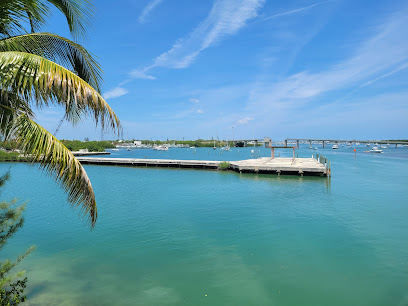
Tranquility Bay Beach Resort
Experience the ultimate tropical getaway at Tranquility Bay Beach Resort, where luxury meets adventure in the stunning Florida Keys.

Sparky's Landing - Fish n Cocktails
Discover the vibrant flavors of Sparky's Landing, where fresh seafood meets grilled perfection in the heart of the Florida Keys.
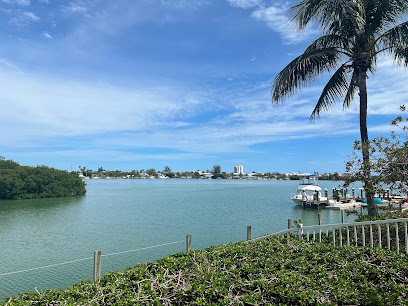
Castaway Waterfront Restaurant & Sushi Bar
Experience the best of Florida Keys dining at Castaway Waterfront Restaurant & Sushi Bar, where fusion cuisine meets stunning ocean views.
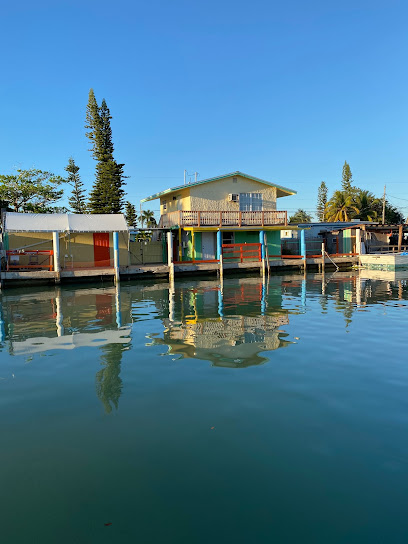
Florida Keys Aquarium Encounters
Explore the vibrant underwater world at Florida Keys Aquarium Encounters, where interactive marine experiences await in the heart of the beautiful Florida Keys.
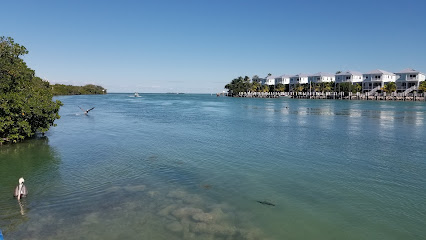
Marathon Mermaid Charters
Embark on a memorable aquatic adventure with Marathon Mermaid Charters in the heart of the Florida Keys, where beautiful marine life and stunning scenery await.
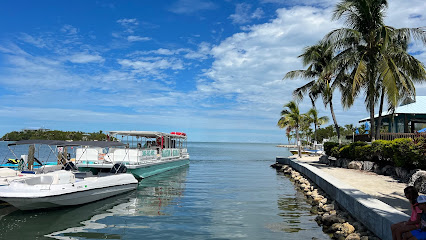
Wooden Spoon
Discover the heart of breakfast dining at Wooden Spoon, where hearty American dishes come alive in a cozy diner setting in Marathon, Florida.
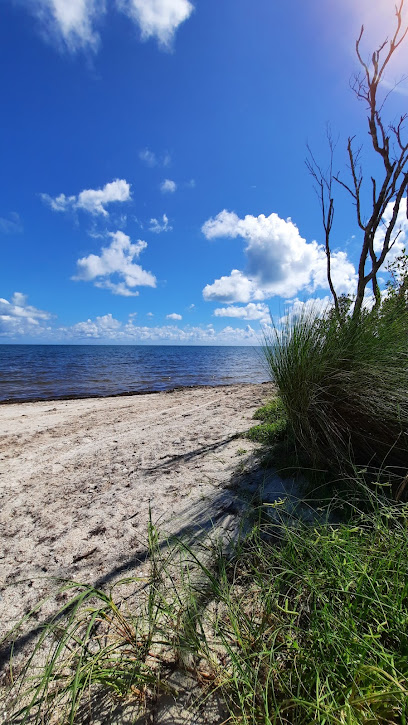
Isla Bella Beach Resort
Experience luxury and tranquility at Isla Bella Beach Resort, your ultimate tropical getaway in the heart of the Florida Keys.

Unmissable attractions to see
Turtle Hospital
Explore the Turtle Hospital in Marathon, Florida, a unique conservation center dedicated to the rescue and rehabilitation of sea turtles.

Florida Keys Aquarium Encounters
Experience the magic of marine life at Florida Keys Aquarium Encounters, where adventure and education come together in a stunning aquatic setting.
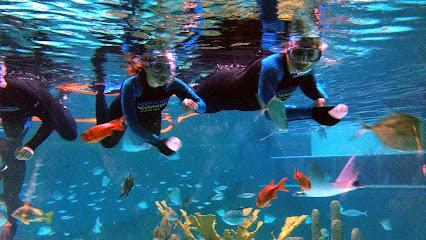
Florida Keys Aquarium Encounters
Experience the wonders of marine life at Florida Keys Aquarium Encounters, where adventure meets education in a vibrant underwater world.
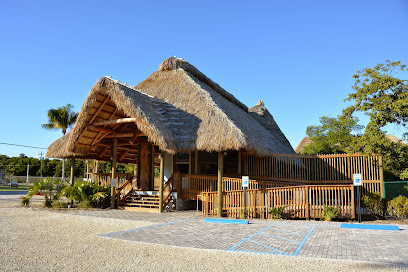
Curry Hammock State Park
Explore the serene beauty of Curry Hammock State Park, a tropical paradise in the Florida Keys, offering outdoor adventures and stunning natural landscapes.
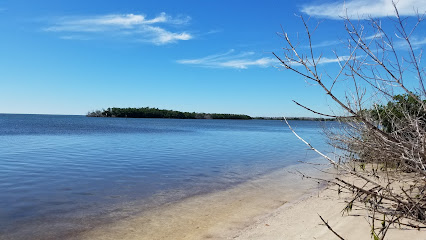
Dolphin Research Center
Immerse yourself in the fascinating world of dolphins at the Dolphin Research Center in Grassy Key, Florida, where education meets conservation.
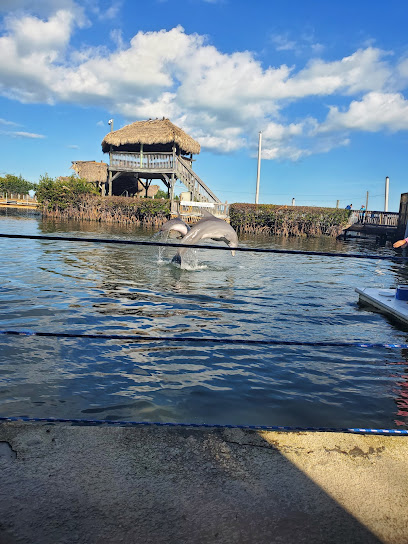
Sunset Park
Explore the serene beauty of Sunset Park in Key Colony Beach, where stunning sunsets and lush greenery create a perfect escape for all travelers.
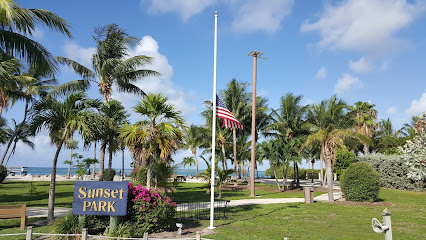
Crane Point Hammock
Explore the lush trails and rich history of Crane Point Hammock in Marathon, Florida, where nature and culture come together in harmony.
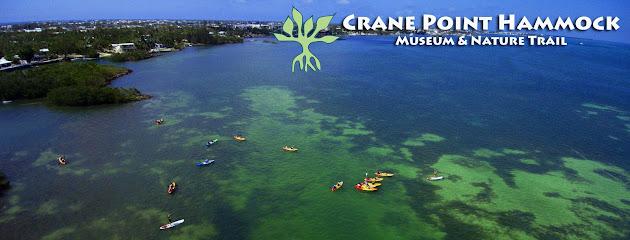
Crane Point Hammock
Explore the enchanting Crane Point Hammock, a serene natural paradise in Marathon, Florida, offering hiking trails, a museum, and rich wildlife experiences.
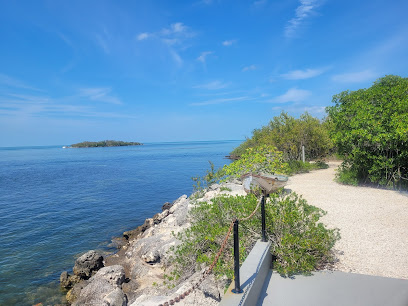
Sombrero Beach
Explore the serene beauty of Sombrero Beach in Marathon, Florida – a perfect destination for relaxation, adventure, and breathtaking sunsets.
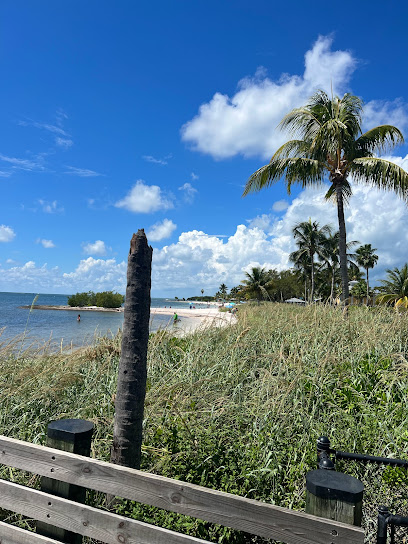
Pigeon Key
Explore Pigeon Key, a historical island in the Florida Keys, offering rich history, outdoor adventures, and breathtaking views.
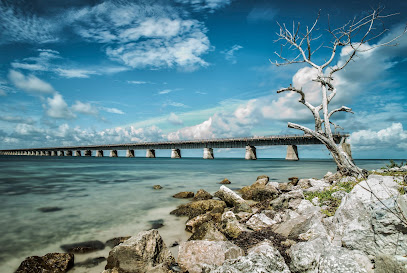
Marathon Community Park
Experience the vibrant outdoor atmosphere at Marathon Community Park, featuring sports fields, a skateboard park, and family-friendly amenities in the heart of the Florida Keys.
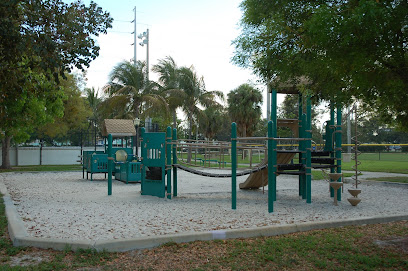
7 Mile Bridge - Vista Point
Discover panoramic views and stunning landscapes at 7 Mile Bridge - Vista Point in Marathon, Florida, an essential stop in the Florida Keys.
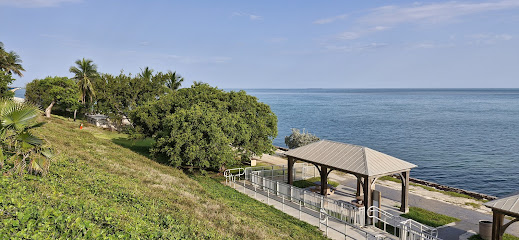
Keys Cable Park
Discover the thrill of water sports and the beauty of nature at Keys Cable Park, a unique destination in Marathon, Florida perfect for all ages.
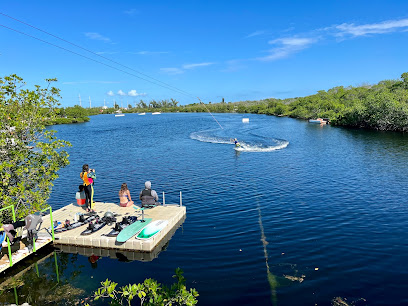
Marathon Air Museum
Explore the fascinating world of aviation at the Marathon Air Museum in Florida - a unique destination for history and aviation enthusiasts.
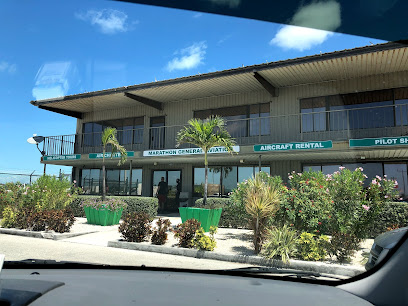
Oceanfront Park
Discover the serene Oceanfront Park in Marathon, Florida, where stunning ocean views meet lush picnic areas for a perfect day outdoors.
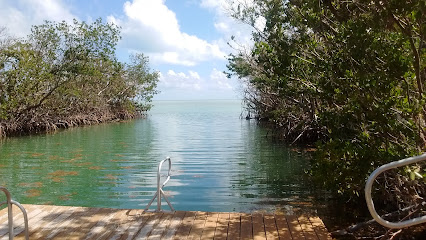
Essential places to dine
Sunset Grille & Raw Bar
Experience fresh seafood and stunning views at Sunset Grille & Raw Bar in Marathon - your perfect dining spot in the Florida Keys.
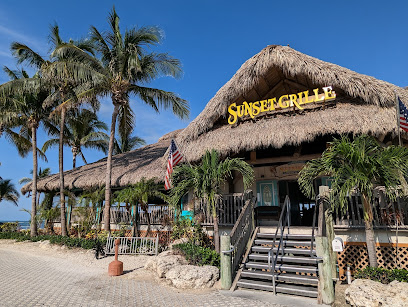
Island Fish Company
Experience authentic Florida Keys seafood at Island Fish Company, where fresh flavors meet stunning waterfront views.
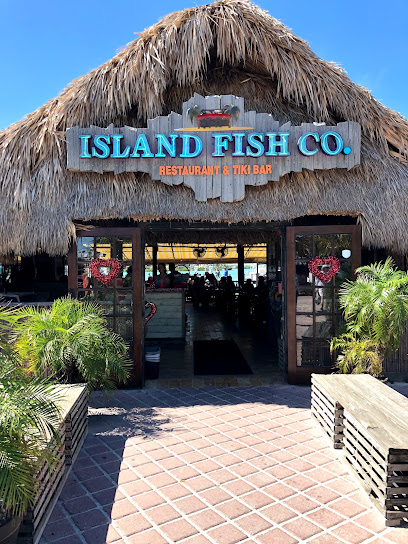
Keys Fisheries
Experience fresh seafood delights at Keys Fisheries in Marathon - home of delicious fish & chips and the iconic Lobster Reuben!
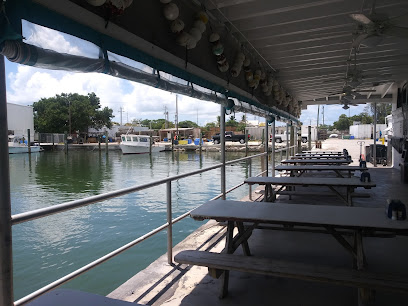
Florida Keys Steak and Lobster House
Discover delectable steaks and fresh seafood at Florida Keys Steak and Lobster House - a culinary gem in Marathon's tropical paradise.
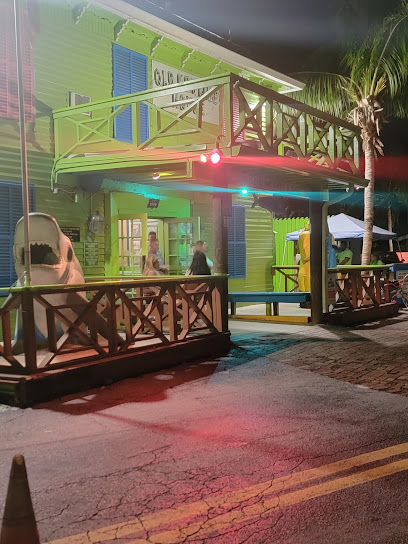
Porky's Bayside Restaurant and Marina
Experience delicious barbecue, fresh seafood, and stunning waterfront views at Porky's Bayside Restaurant and Marina in Marathon, Florida.
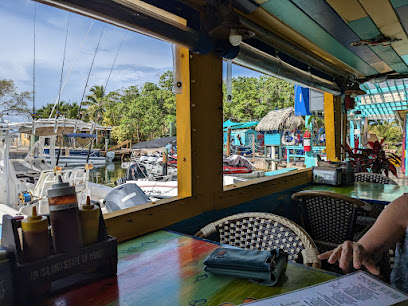
Burdines Waterfront
Discover Burdines Waterfront in Marathon - where American cuisine meets breathtaking ocean views in a relaxed atmosphere.
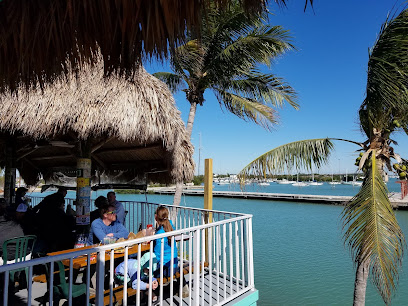
Sparky's Landing - Fish n Cocktails
Discover Sparky's Landing: Where fresh seafood meets vibrant flavors in the heart of Marathon, Florida.
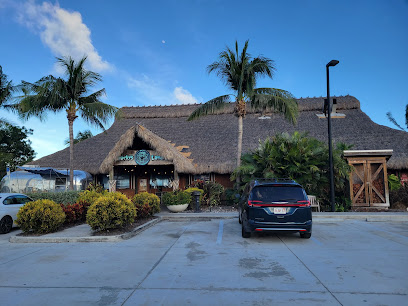
Castaway Waterfront Restaurant & Sushi Bar
Discover culinary bliss at Castaway Waterfront Restaurant & Sushi Bar in Marathon, where Asian flavors meet fresh seafood amidst stunning ocean views.
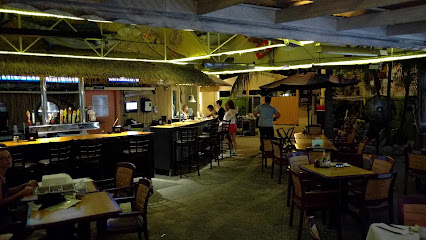
La Niña Restaurant
Experience authentic Cuban cuisine at La Niña Restaurant in Marathon - where every dish tells a story.
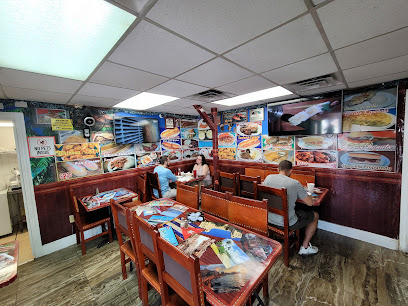
Lazy Days South
Experience the freshest seafood and American classics at Lazy Days South in Marathon, Florida - where every meal is a taste of paradise.
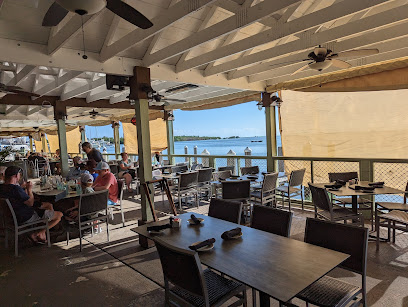
7 Mile Grill
Discover diverse culinary delights at 7 Mile Grill in Marathon - from hearty breakfasts to mouthwatering dinners with local flavors.
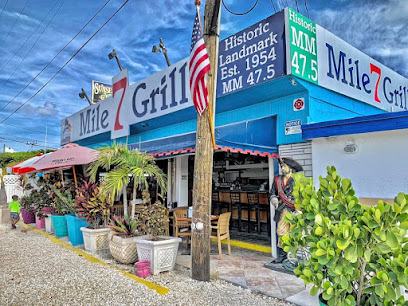
Cracked Conch Cafe
Experience the best seafood in Marathon at Cracked Conch Cafe - where fresh flavors meet island charm.
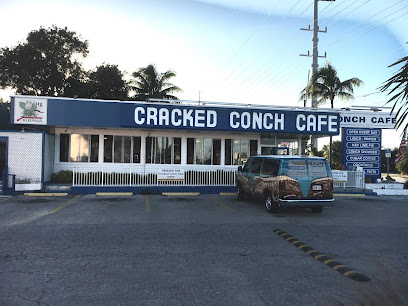
Wooden Spoon
Discover Wooden Spoon in Marathon - your go-to diner for delicious American breakfasts in a cozy atmosphere.
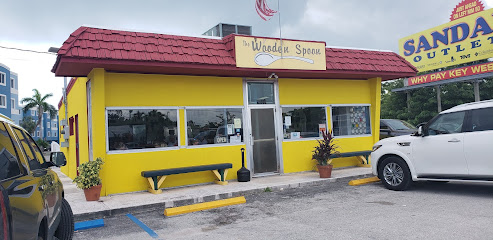
S.S. Wreck & Galley Grill
Discover the delightful flavors of fresh seafood at S.S. Wreck & Galley Grill in Marathon, where every meal is a maritime experience.
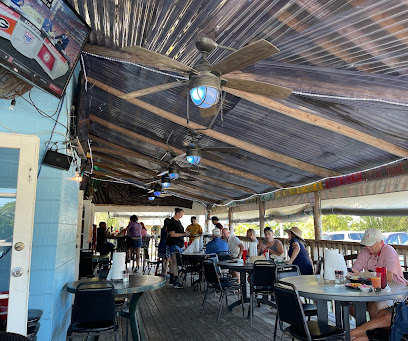
King Seafood Market & Restaurant
Discover a flavorful fusion of fresh seafood and Cuban cuisine at King Seafood Market & Restaurant in Marathon, Florida.
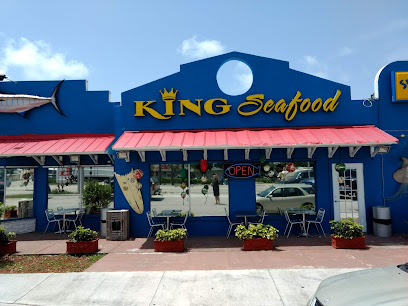
Markets, malls and hidden boutiques
Sandal Factory Outlet
Explore a vast selection of stylish and affordable sandals at the Sandal Factory Outlet in Marathon, Florida - perfect for every beach lover!
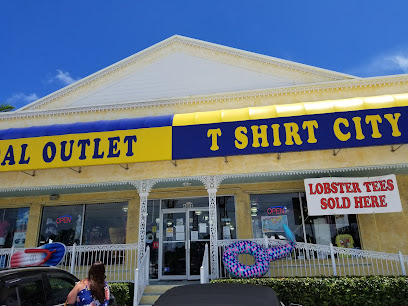
bealls
Explore Bealls in Marathon, Florida, your ultimate shopping destination for affordable fashion, accessories, and home goods for the whole family.
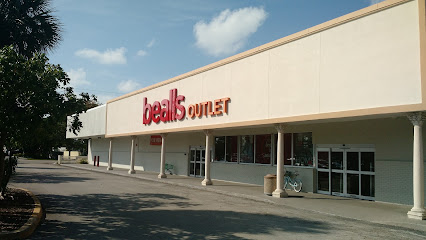
Mr. Beans Books & Beans (formerly Keys News and Coffee)
Discover a cozy coffee shop and bookstore in Marathon, Florida; a perfect blend of rich brews and captivating reads in the heart of the Keys.
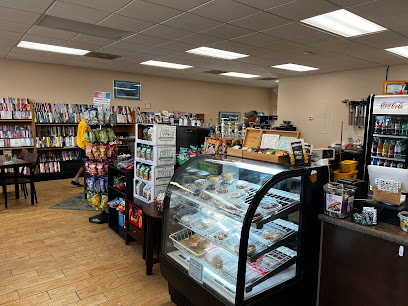
Sandal Factory Inc
Explore stylish sandals at Sandal Factory Inc, your go-to shoe store in Marathon, Florida, offering a wide selection and excellent service.
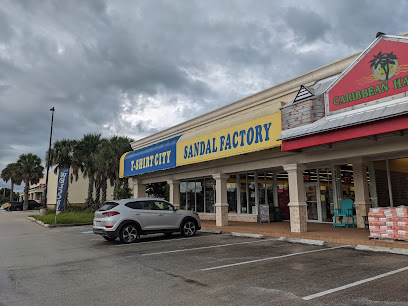
Christina's Consignment thrift Boutique
Explore the unique treasures at Christina's Consignment Thrift Boutique in Marathon, Florida, where every visit reveals delightful finds and sustainable fashion.
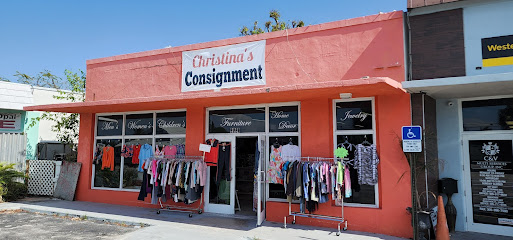
Keys Maritime Specialty Bait and Seafood Market
Discover fresh seafood and local delicacies at the Keys Maritime Specialty Bait and Seafood Market in Marathon, Florida.
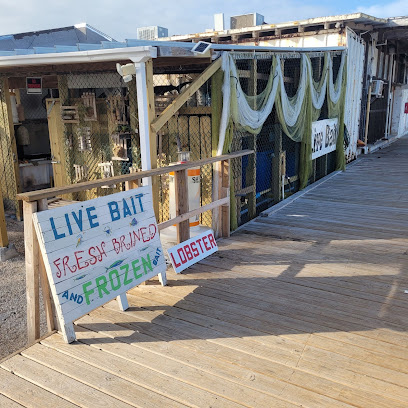
Bayshore Clothing
Explore a unique selection of clothing and jewelry at Bayshore Clothing, a charming gift shop in the heart of Marathon, Florida.
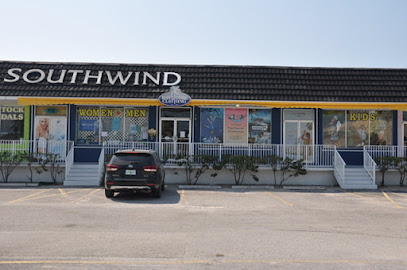
The Midas Touch Jewelry Store
Explore The Midas Touch Jewelry Store in Marathon, Florida - a treasure trove of exquisite jewelry pieces crafted with care and artistry.
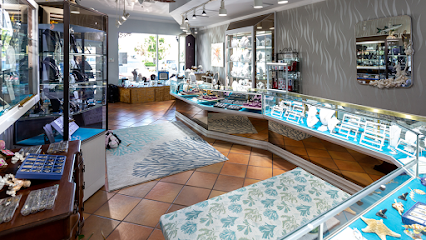
Gulfside village
Explore Gulfside Village: A lively shopping mall in Marathon, FL, offering unique boutiques, dining, and a perfect Florida Keys experience.
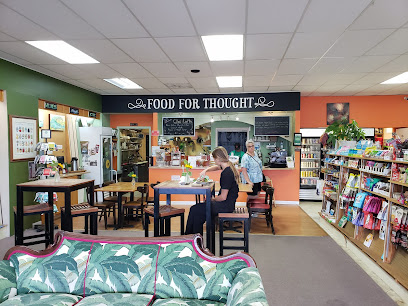
DK’S Beach Boutique
Discover unique gifts and stylish beachwear at DK’S Beach Boutique in Key Colony Beach, a shopping paradise for every traveler.
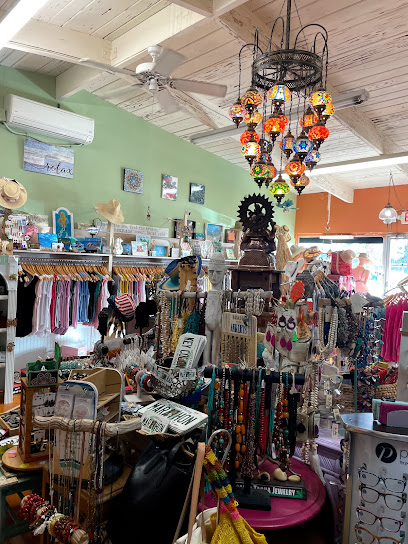
Anthony's Ladies Apparel
Discover stylish women's clothing and swimwear at Anthony's Ladies Apparel in Marathon, Florida Keys - your ultimate shopping destination!
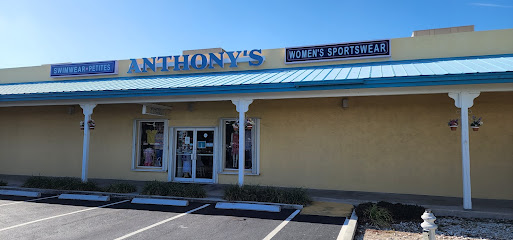
Island Gift Shop
Explore the Island Gift Shop in Marathon, Florida, for unique souvenirs and local crafts that capture the spirit of your tropical vacation.
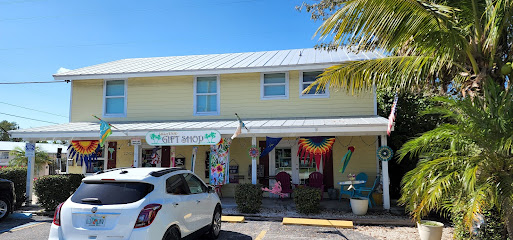
Marooned In Marathon
Explore a treasure trove of unique gifts and local crafts at Marooned In Marathon, the perfect stop for Florida Keys souvenirs.
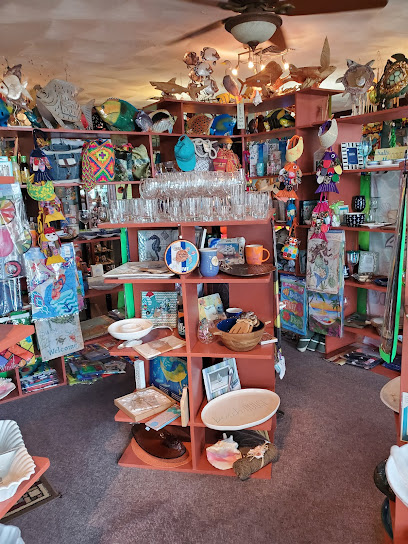
Uniques
Explore Uniques in Marathon, Florida, for a delightful selection of handmade gifts and memorable souvenirs that embody the spirit of the Keys.

Port Nautical Gifts
Discover unique Florida souvenirs and handcrafted treasures at Port Nautical Gifts in Marathon, your one-stop destination for local charm.
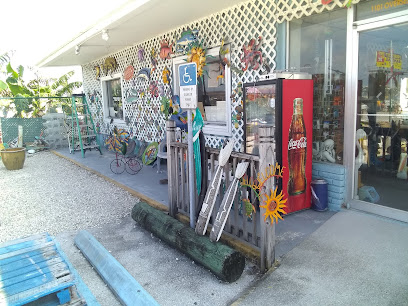
Essential bars & hidden hideouts
Sunset Grille & Raw Bar
Experience the perfect blend of fresh seafood, vibrant tiki bar culture, and breathtaking waterfront views at Sunset Grille & Raw Bar in Marathon, Florida.
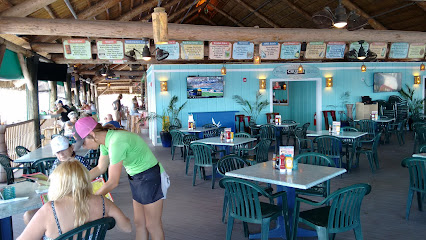
Island Fish Company
Discover the flavors of the sea at Island Fish Company, a premier seafood restaurant in the beautiful Florida Keys, offering fresh dishes and stunning views.
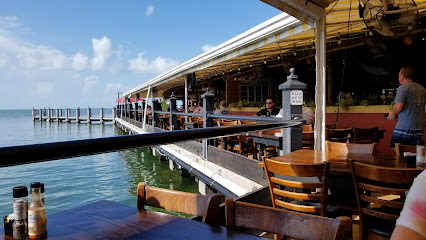
Florida Keys Steak and Lobster House
Experience the best of Florida's culinary scene with delectable steaks and fresh seafood at Florida Keys Steak and Lobster House.
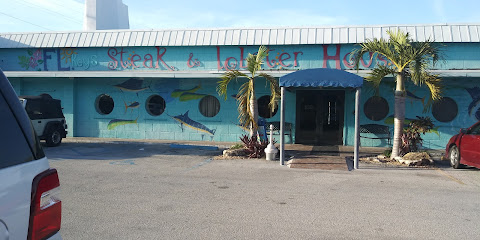
Porky's Bayside Restaurant and Marina
Experience the flavors of the Florida Keys at Porky's Bayside Restaurant and Marina, where barbecue meets seafood in a vibrant waterfront setting.
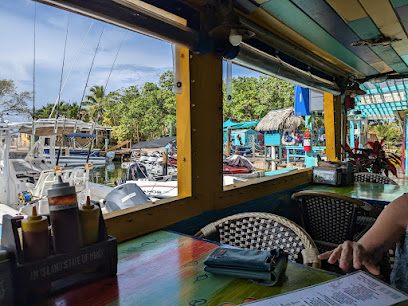
Burdines Waterfront
Experience the best of American cuisine at Burdines Waterfront in Marathon, Florida, where delicious food meets stunning ocean views.
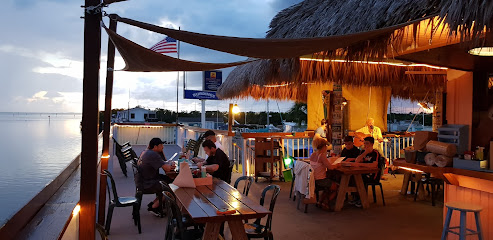
Sparky's Landing - Fish n Cocktails
Discover the flavors of the Florida Keys at Sparky's Landing, where fresh seafood and delicious pizza meet stunning coastal views.
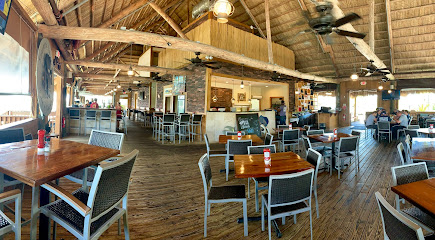
Castaway Waterfront Restaurant & Sushi Bar
Discover the vibrant flavors of the Florida Keys at Castaway Waterfront Restaurant & Sushi Bar, where fresh seafood meets Asian fusion cuisine.
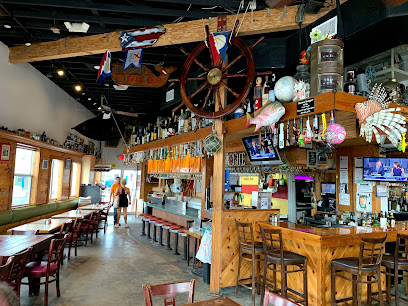
7 Mile Grill
Experience the best of Marathon dining at 7 Mile Grill, where diverse flavors meet a relaxed atmosphere for an unforgettable meal.
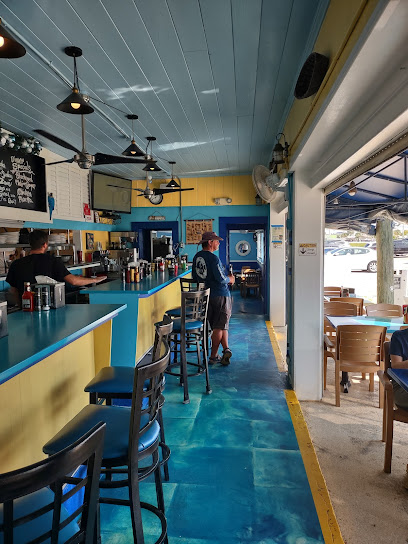
S.S. Wreck & Galley Grill
Discover the flavors of the Florida Keys at S.S. Wreck & Galley Grill, where delicious burgers and fresh seafood await in a vibrant coastal setting.
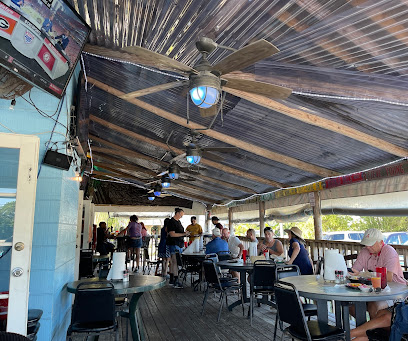
Marathon Grill and Ale House
Savor the taste of America at Marathon Grill and Ale House, where delicious food meets vibrant nightlife in the heart of the Florida Keys.
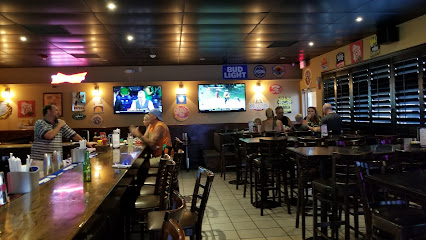
The Stuffed Pig
Discover the rich flavors of The Stuffed Pig in Marathon, Florida – a must-visit restaurant offering hearty meals and a welcoming atmosphere.
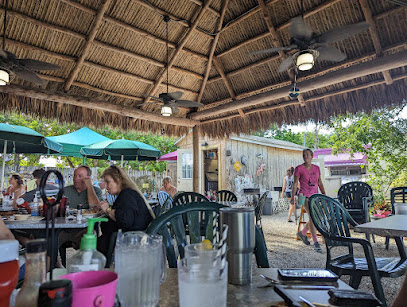
Havana Jack's Oceanside Restaurant and Bar
Experience the best of American cuisine with stunning ocean views at Havana Jack's Oceanside Restaurant and Bar in Key Colony Beach.
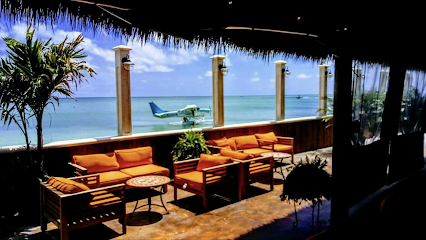
Overseas Pub and Grill
Experience a delightful blend of seafood, grill favorites, and lively entertainment at Overseas Pub and Grill in Marathon, Florida.
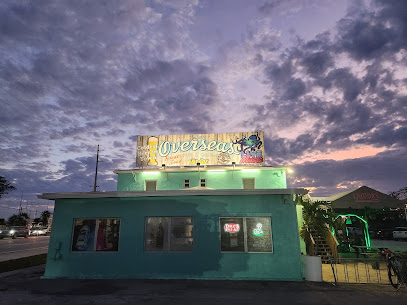
Herbie's Bar & Chowder House
Discover the taste of the Florida Keys at Herbie's Bar & Chowder House, where traditional seafood meets a friendly bar atmosphere.
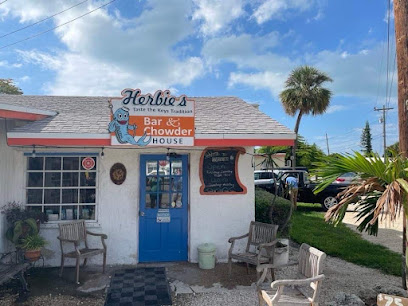
Local Phrases about Marathon Key
-
- HelloHey
[Hey] - GoodbyeBye
[Bye] - YesYeah
[Yeah] - NoNope
[Nope] - Please/You're welcomePlease/No problem
[Please/No problem] - Thank youThanks
[Thanks] - Excuse me/SorryExcuse me/Sorry
[Excuse me/Sorry] - How are you?How you doin'?
[How you doin'?] - Fine. And you?Fine. You?
[Fine. You?] - Do you speak English?You speak English?
[You speak English?] - I don't understandI don't get it
[I don't get it]
- HelloHey
-
- I'd like to see the menu, pleaseMenu, please
[Menu, please] - I don't eat meatNo meat
[No meat] - Cheers!Cheers!
[Cheers!] - I would like to pay, pleaseCheck, please
[Check, please]
- I'd like to see the menu, pleaseMenu, please
-
- Help!Help!
[Help!] - Go away!Go away!
[Go away!] - Call the Police!Call the cops!
[Call the cops!] - Call a doctor!Call a doctor!
[Call a doctor!] - I'm lostLost
[Lost] - I'm illSick
[Sick]
- Help!Help!
-
- I'd like to buy...I wanna buy...
[I wanna buy...] - I'm just lookingJust looking
[Just looking] - How much is it?How much?
[How much?] - That's too expensiveToo much
[Too much] - Can you lower the price?Lower the price?
[Lower the price?]
- I'd like to buy...I wanna buy...
-
- What time is it?What time?
[What time?] - It's one o'clockIt's one
[It's one] - Half past (10)Half ten
[Half ten] - MorningMorning
[Morning] - AfternoonAfternoon
[Afternoon] - EveningEvening
[Evening] - YesterdayYesterday
[Yesterday] - TodayToday
[Today] - TomorrowTomorrow
[Tomorrow] - 1One
[One] - 2Two
[Two] - 3Three
[Three] - 4Four
[Four] - 5Five
[Five] - 6Six
[Six] - 7Seven
[Seven] - 8Eight
[Eight] - 9Nine
[Nine] - 10Ten
[Ten]
- What time is it?What time?
-
- Where's a/the...?Where's the...?
[Where's the...?] - What's the address?What's the address?
[What's the address?] - Can you show me (on the map)?Show me (on the map)?
[Show me (on the map)?] - When's the next (bus)?Next (bus)?
[Next (bus)?] - A ticket (to ....)Ticket (to ....)
[Ticket (to ....)]
- Where's a/the...?Where's the...?
History of Marathon Key
-
Long before European explorers arrived, Marathon Key and the surrounding Florida Keys were inhabited by the Calusa and Tequesta tribes. These Native American peoples were skilled fishermen and navigators, who developed complex societies and utilized the abundant resources of the marine environment. They crafted tools and weapons from shells and bones, leaving behind a rich archaeological legacy that hints at their sophisticated way of life.
-
In the early 16th century, Spanish explorers were among the first Europeans to encounter Marathon Key. Juan Ponce de León is believed to have visited the area in 1513 during his quest for the Fountain of Youth. The Spanish claimed the Florida Keys, including Marathon, but did not establish any permanent settlements. The Spanish influence can still be seen in some of the place names and cultural remnants in the region.
-
During the 18th and 19th centuries, Marathon Key became known for its association with the wrecking industry. Shipwrecks were common in the treacherous waters of the Florida Keys, and 'wreckers' from the Bahamas were quick to salvage valuable cargoes. These wreckers played a crucial role in the local economy, and their presence left a lasting impact on the culture and development of the area. The industry also brought settlers and contributed to the establishment of early communities.
-
One of the most significant events in the history of Marathon Key was the construction of Henry Flagler's Overseas Railroad. Completed in 1912, this ambitious project connected the Florida Keys to the mainland for the first time. Marathon Key served as a crucial hub during the railroad's construction, and its completion transformed the region's accessibility and economy. The railroad operated until 1935, when it was severely damaged by the Labor Day Hurricane, but its legacy continues to shape the Keys.
-
The Labor Day Hurricane of 1935 was one of the most powerful hurricanes ever recorded in the United States. It had a devastating impact on Marathon Key and the surrounding areas, obliterating much of Henry Flagler's Overseas Railroad. The hurricane claimed hundreds of lives, including many World War I veterans working on the railroad. The disaster highlighted the vulnerability of the Keys to natural disasters and led to major changes in infrastructure and disaster preparedness.
-
In the wake of the 1935 hurricane, the construction of the Overseas Highway began, replacing the damaged railroad. Completed in 1938, the highway connected the Keys with a series of bridges and causeways, making Marathon Key more accessible than ever before. This new infrastructure spurred economic growth, tourism, and development in the area. Today, the Seven Mile Bridge, which connects Marathon to the Lower Keys, stands as an iconic symbol of this engineering marvel.
-
Marathon Key has a long history of environmental conservation efforts aimed at preserving its unique ecosystems. The establishment of the Florida Keys National Marine Sanctuary in 1990 protected the surrounding coral reefs and marine habitats. Organizations like the Turtle Hospital, founded in 1986, work tirelessly to rescue and rehabilitate sea turtles. These efforts reflect the community's deep commitment to protecting the natural beauty and biodiversity of Marathon Key.
-
Marathon Key hosts a variety of cultural festivals and events that celebrate its rich history and vibrant community. The annual Seafood Festival, held every March, showcases the region's culinary delights and maritime heritage. Other events, such as the Pigeon Key Art Festival and the Original Marathon Seafood Festival, bring together locals and visitors to enjoy music, art, and local cuisine. These celebrations highlight the enduring cultural traditions and community spirit of Marathon Key.
Marathon Key Essentials
-
Marathon Key is located in the Florida Keys, approximately 50 miles northeast of Key West and 100 miles southwest of Miami. The closest major airport is Key West International Airport (EYW), but many travelers also fly into Miami International Airport (MIA) or Fort Lauderdale-Hollywood International Airport (FLL) and then drive down. From Miami, you can take the scenic Overseas Highway (U.S. 1) directly to Marathon Key. Alternatively, you can use shuttle services or rent a car for more flexibility.
-
Once in Marathon Key, getting around is relatively easy. Car rentals are a popular option for exploring the area and neighboring keys. Local taxis and ride-sharing services like Uber and Lyft are available but might be limited during peak times. For a more leisurely experience, consider renting a bicycle or scooter. Public transportation is limited, with the local bus service, Key West Transit, providing routes between Marathon and other parts of the Keys.
-
The official currency in Marathon Key, as in the rest of the United States, is the U.S. Dollar (USD). Credit and debit cards are widely accepted in hotels, restaurants, and shops. ATMs are readily available throughout the area. It is advisable to carry some cash for smaller establishments and tips, as some places might have minimum purchase requirements for card payments.
-
Marathon Key is generally safe for tourists, but it's always wise to take standard precautions. Avoid walking alone at night in poorly lit areas and be mindful of your belongings in crowded places. The area does not have specific high-crime neighborhoods targeting tourists, but it's always best to stay vigilant, especially in unfamiliar surroundings.
-
In case of an emergency, dial 911 for immediate assistance. Marathon Key has a local police department and medical facilities, including Fishermen's Community Hospital, which provides emergency services. It is recommended to have travel insurance that covers medical emergencies. Pharmacies are available for minor health issues, and over-the-counter medications can be easily purchased.
-
Fashion: Do dress comfortably and casually, as the climate is warm and tropical. Don't wear overly revealing clothing in public spaces, especially in family-friendly areas. Religion: Do respect local places of worship and cultural sites. There are no specific religious dress codes, but modesty is appreciated. Public Transport: Do be courteous to drivers and other passengers. Don't expect extensive public transportation options; planning ahead is advisable. Greetings: Do greet with a friendly 'hello' or 'hi.' Handshakes are common, but a simple smile often suffices. Eating & Drinking: Do try local seafood and key lime pie. Don't forget to tip your servers, as tipping is customary in the U.S., typically 15-20% of the bill.
-
To experience Marathon Key like a local, visit the local fish markets for fresh catches of the day. Engage with locals at community events and festivals, such as the annual Seafood Festival. Enjoy outdoor activities like fishing, boating, and snorkeling in the crystal-clear waters. Don't miss a sunset at the Old Seven Mile Bridge, a popular spot for both tourists and locals. For a unique experience, consider visiting the Turtle Hospital to learn about marine conservation efforts.
Trending Landmarks in Marathon Key
-
Fort Zachary Taylor Historic State Park
-
John Pennekamp Coral Reef State Park
-
Sunset Grille & Raw Bar
-
Island Fish Company
-
Turtle Hospital
-
Florida Keys Steak and Lobster House
-
Porky's Bayside Restaurant and Marina
-
Burdines Waterfront
-
Tranquility Bay Beach Resort
-
Sparky's Landing - Fish n Cocktails
-
Castaway Waterfront Restaurant & Sushi Bar
-
Florida Keys Aquarium Encounters
-
Marathon Mermaid Charters
-
Wooden Spoon
-
Isla Bella Beach Resort
Nearby Cities to Marathon Key
-
Things To Do in Key West
-
Things To Do in Homestead
-
Things To Do in Miami
-
Things To Do in Fort Lauderdale
-
Things To Do in Bimini
-
Things To Do in Cape Coral
-
Things To Do in Fort Myers
-
Things To Do in Stuart
-
Things To Do in Sebring
-
Things To Do in Ft. Pierce
-
Things To Do in Lucaya
-
Things To Do in Freeport
-
Things To Do in Sarasota
-
Things To Do in Andros Town
-
Things To Do in St. Petersburg











